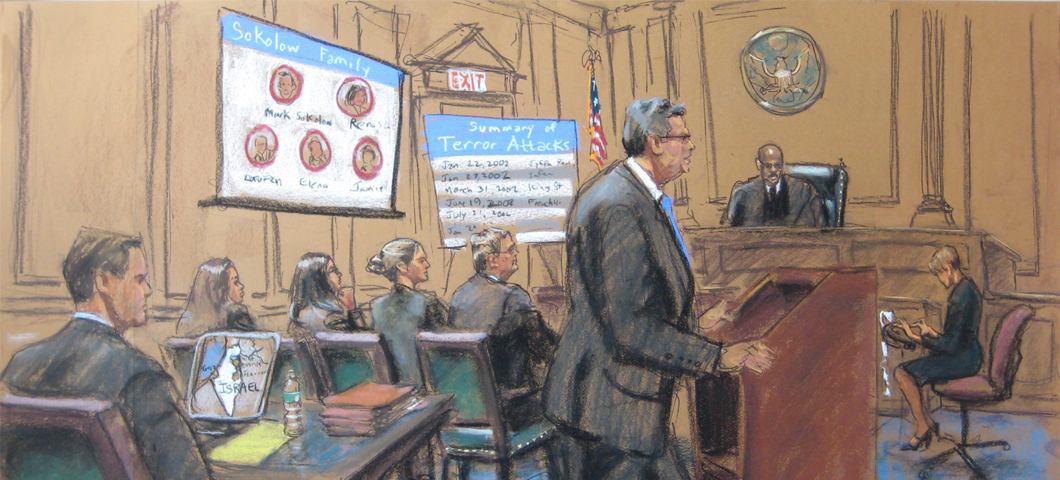How Trial Presentations Are Vital for Effective Cross-Examination in Court
How Trial Presentations Are Vital for Effective Cross-Examination in Court
Blog Article
Enhancing Your Legal Technique With Specialist Test Presentations
In today's lawful landscape, the importance of expert trial discussions can not be overstated. By transforming thick lawful ideas right into interesting stories, specialists can improve juror comprehension and retention.
Relevance of Test Presentations
Trial presentations work as a pivotal aspect in the legal procedure, successfully linking the space between complicated legal arguments and juror comprehension. The ability to distill detailed legal concepts right into easily accessible stories is crucial for jurors, who need to make informed choices based on the evidence offered. A well-crafted discussion not only makes clear the instance but also improves the persuasiveness of the argument, ultimately influencing the court's perception.
In an age where focus spans are limited, the importance of involving visuals and clear communication can not be overemphasized. Test presentations offer to catch jurors' interest and keep their focus, permitting a much deeper understanding of the realities and lawful concerns handy. In addition, they offer an organized structure that arranges the case, facilitating logical circulation and comprehensibility.

Key Components of Effective Presentations
A reliable discussion in a courtroom setting hinges on several crucial elements that collectively improve its effect. Lawyers should distill intricate legal debates right into concise, conveniently absorbable points to make sure jurors grasp the core issues.
Aesthetic aids play an important function as well, as they can substantially strengthen essential messages. Efficient use exhibits, charts, and representations can make clear detailed information and highlight important truths. In addition, the presenter's distribution style is essential; positive, interesting interaction cultivates reliability and preserves jurors' interest.
Lastly, recognizing the audience is critical. Tailoring the discussion to the jurors' backgrounds and worths can promote a connection that enhances receptiveness to the argument. In summary, clarity, narrative structure, visual aids, distribution design, and target market awareness are essential to crafting a reliable court room presentation that resonates with jurors and sustains the overarching lawful technique.
Technology in Test Presentations
Modern court rooms progressively integrate technology to boost test discussions, improving the fundamental components of reliable interaction developed with clear messaging and appealing narratives. The unification of audio-visual aids, such as high-definition projectors and interactive displays, enables legal teams to existing evidence in an extra compelling fashion. This technology not just records the jury's interest however additionally promotes a better understanding of intricate details.

Digital devices, including presentation software application and electronic display monitoring systems, simplify the company and retrieval of proof (trial presentations). Lawyers can promptly reference papers, images, and video clips, making certain click for more that essential details is readily accessible throughout the trial. Additionally, making use of animations and simulations can strongly highlight essential ideas, making them less complicated for jurors to understand
Moreover, court room technology advertises partnership among lawyers, allowing real-time modifications to presentations based upon court reactions or unexpected advancements. The capacity to adapt on the fly is important in preserving involvement and strengthening arguments. As innovation remains to develop, its duty in trial discussions will unquestionably increase, supplying innovative means to connect successfully and persuasively in the quest of justice.
Narration Techniques for Effect
Efficient storytelling strategies are essential in delivering impactful trial presentations, as they change intricate legal disagreements into relatable stories. A well-crafted tale mesmerizes the audience, making it much easier for jurors to understand and bear in mind bottom lines.
To create a compelling story, lawyers need read the article to concentrate on establishing a clear structure with a beginning, center, and end. The start her latest blog should present the instance context and its value, while the middle elaborates on the core issues, weaving in evidence and witness testaments that support the disagreement. Effectively, the ending need to reinforce the intended message, driving home the desired outcome.
In addition, incorporating emotional aspects can substantially boost the story's impact. By humanizing the instance, attorneys can stimulate compassion, permitting jurors to connect personally with the truths presented. Making use of vivid imagery and stories can likewise help in highlighting complex styles, making them much more substantial and unforgettable.

Tips for Application in Court
Executing narration methods in court calls for mindful planning and execution to guarantee that the narrative resonates with jurors. Begin by determining the core message of your case and aligning it with the emotional and factual aspects that will engage the court. Produce a clear and compelling narrative arc that consists of an introduction, an advancement of conflict, and a resolution.
Make use of visual help to enhance storytelling; displays, timelines, and multimedia discussions can help show intricate ideas and preserve juror interest. Practice your distribution, guaranteeing that body language, tone, and pacing are constant with the psychological weight of your tale.

Verdict
In verdict, specialist trial discussions play a crucial duty in enhancing lawful approaches by effectively connecting complicated debates to jurors. The integration of aesthetic help, clear narratives, and emotional storytelling cultivates juror involvement and comprehension.
Report this page